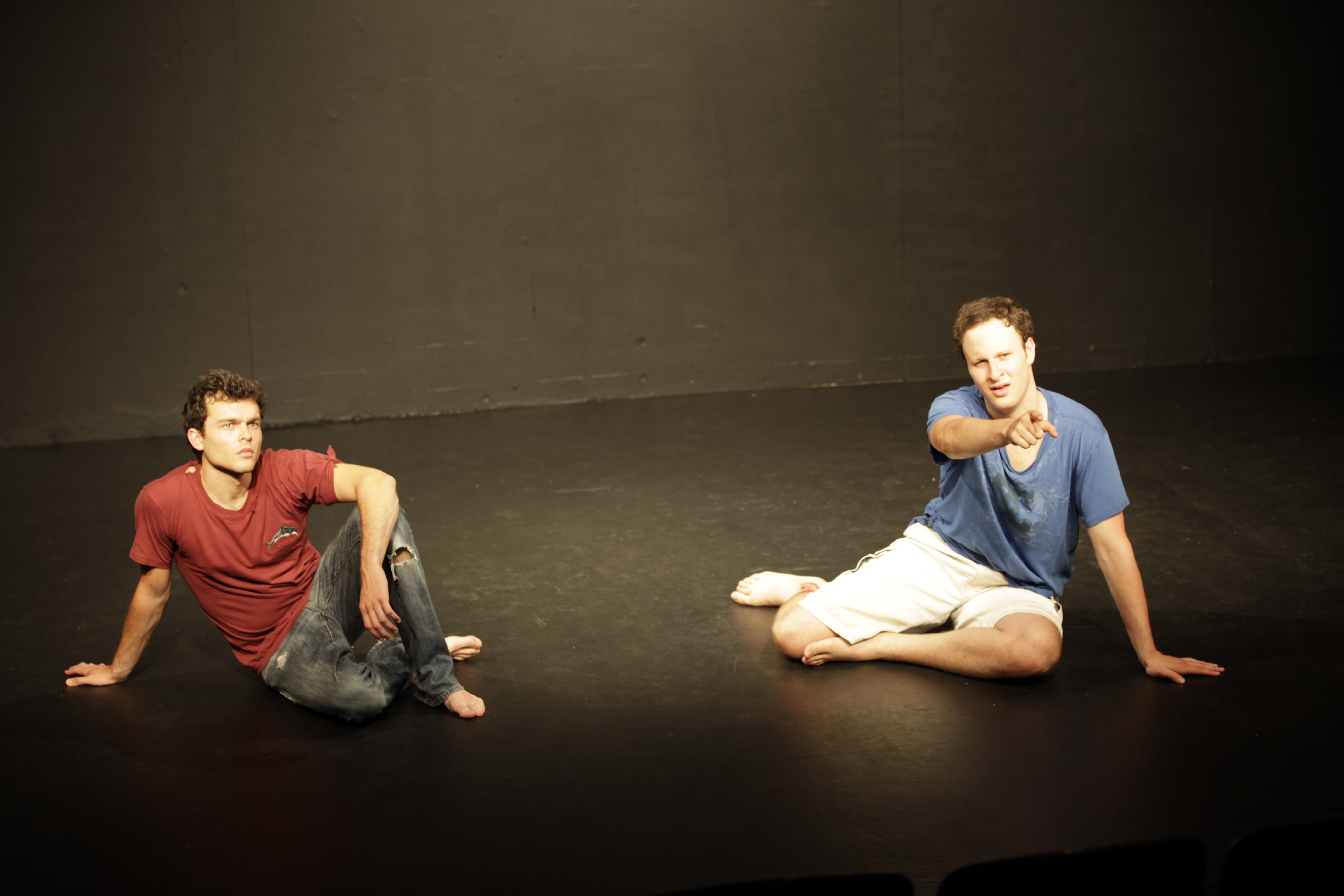Like majoring in classics or playing the harpsichord, writing a play doesn't immediately give a young person an answer to the "what are you going to do with it?" question. At best, the practical critic assumes, it could be aspirational, no more than a stepping stone to bigger budgets, to larger venues and eventually to film crews.
But some people just really really like theatre. Of these, there are the typical revivalists and sentimentalists, who tend to make art for people like themselves. But then there are people for whom theatre (or harpsichords) is qualitatively different from everything else in the world and for whom that's a good enough excuse to do something "old-fashioned." Justin Kuritzkes, the young writer/co-director of As the Boat Approaches, belongs in the latter category.

Photo: David Williams
The play, which premiered at the El Centro Theatre in Los Angeles and will run at the New York International Fringe Festival this month, doesn't bother with the revivalist spirit. There are no period costumes or props. There are no unities. There are dinosaurs. The wildly different scenes start to cohere towards the end, and even then they never entirely get explained. The play doesn't express the slightest sense of duty to the old forms, and instead sees the limitations of the stage as a springboard to explore the human imagination. Imagination, in fact, is essential to the plot, although it wouldn't be very sporting to say more.
Suffice it to say that imagination is essential to the audience. The two actors (Josh Margolin and Alden Ehrenreich in the Los Angeles run) play around 20 different characters between them, with only context, accents and gestural cues to differentiate them. At one point, the young actors must become upper class Frenchmen in the Age of Exploration, and the essence of Margolin's Frenchness comes not from ze accent but from a certain combination of pursed lips and flared nostrils.
Another time, they become pre-Columbian workmen digging a deep hole, and Ehrenreich's character mimes climbing to the surface as Margolin's stays at the bottom. There is no set, no apparatus for Ehrenreich to actually climb, so he ends up level with his co-star and the "screen" splits to show their communication; the man in the hole cranes his head upward to talk, and his friend looks down to reply. The audience laughs, not exactly because of what the actors are doing, but because of what we were asked to imagine.
Pauline Kael told the story of an "older director," whom legend has transformed into Alfred Hitchcock, describing Steven Spielberg's work in Jaws: "He must never have seen a play; he's the first one of us who doesn't think in terms of the proscenium arch. With him, there's nothing but the camera lens." In the same way, one gets the impression that Kuritzkes never heard that plays sometimes get filmed; he doesn't think in terms of the camera, and there's nothing but the stage.
Theatre, of course, doesn't have to be aspirational to film, but it's still a shock to see just how defiant a play can be when it decides to be staunchly, impractically, a play.
To illustrate, imagine, for a moment, that we're Ancient Greeks. A Roman soldier, steward of organization and engineering and practicality, interrupts the studies of Greek mathematician Archimedes, and we hear the old man warn the conqueror, "do not disturb my circles." As the story goes, that's the end of Archimedes. But what a badass, we think to ourselves, he was to say that.
This is, more or less, how I felt about As The Boat Approaches. Theatrical form may be up against an impossible adversary in film, but it can be awfully heroic when a director doesn't seem to care. If you're in New York this month, do your imagination a favor and try to catch it (details here). And if you have to miss it, at least spend a moment rethinking the harpsichord.